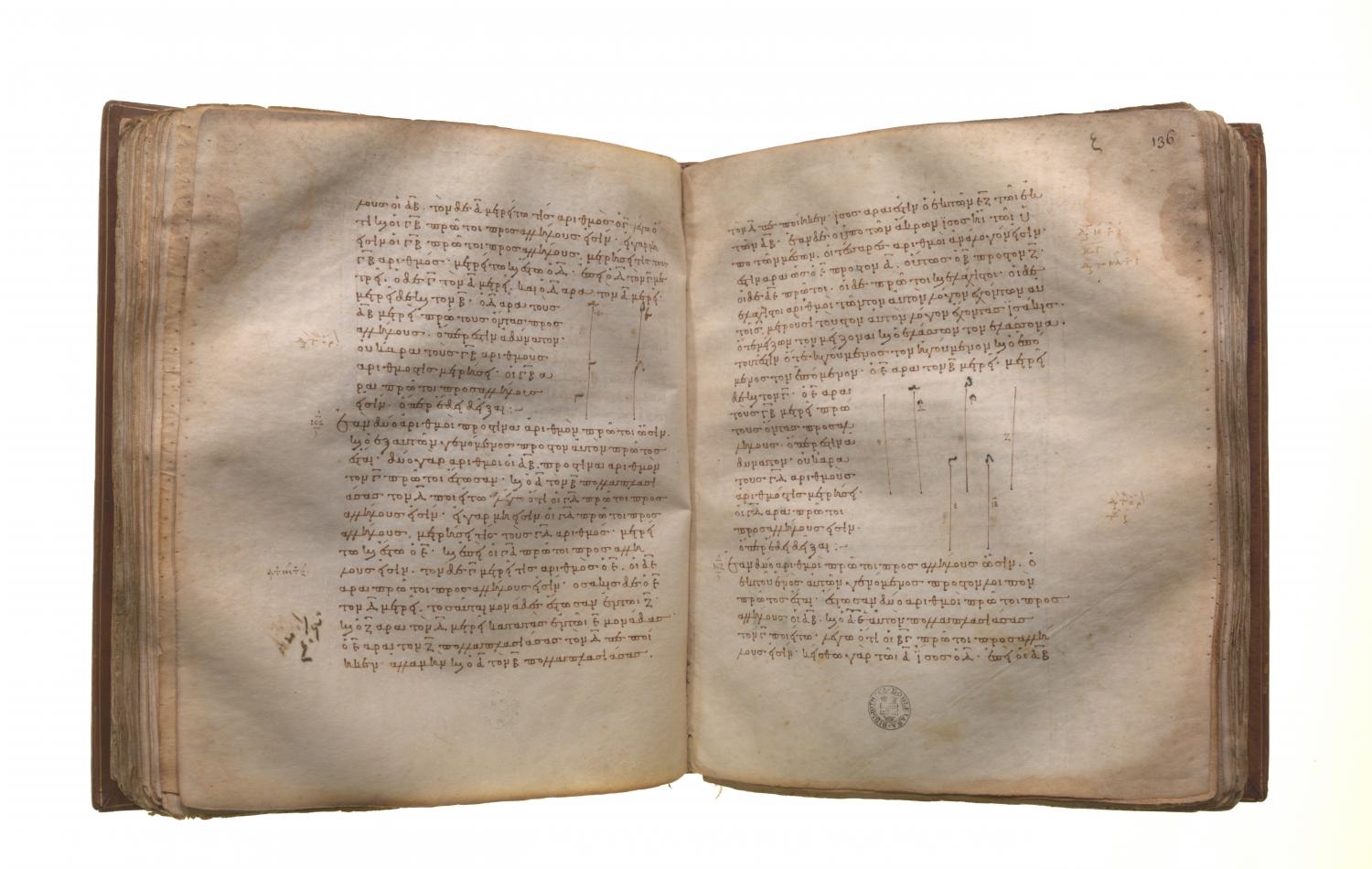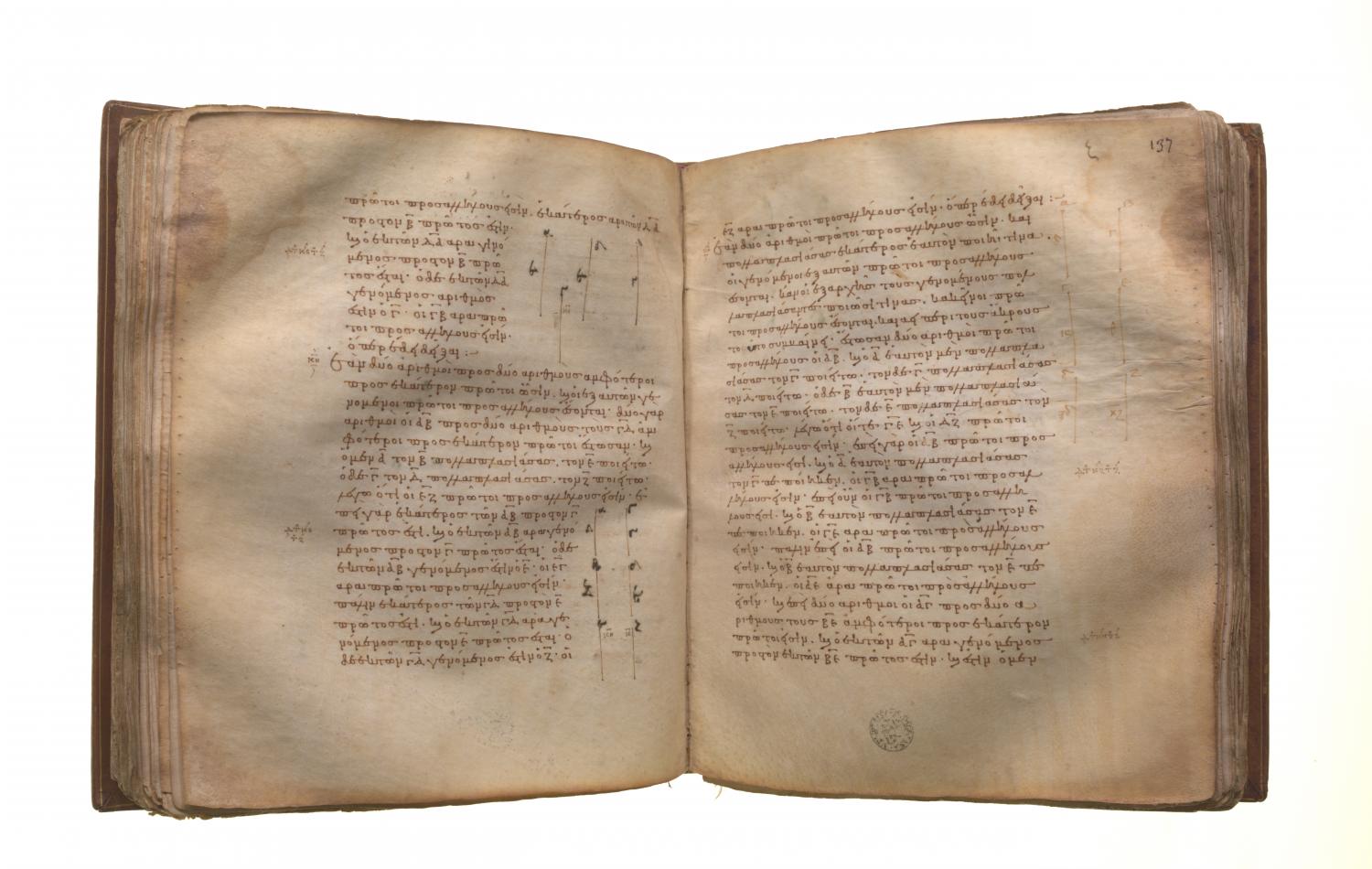Fundamentals of number theory: Book 7 Proposition 25
Translations
Ἐὰν δύο ἀριθμοὶ πρῶτοι πρὸς ἀλλήλους ὦσιν, ὁ ἐκ τοῦ ἑνὸς αὐτῶν γενόμενος πρὸς τὸν λοιπὸν πρῶτος ἔσται. Ἔστωσαν δύο ἀριθμοὶ πρῶτοι πρὸς ἀλλήλους οἱ Α, Β, καὶ ὁ Α ἑαυτὸν πολλαπλασιάσας τὸν Γ ποιείτω: λέγω, ὅτι οἱ Β, Γ πρῶτοι πρὸς ἀλλήλους εἰσίν. Κείσθω γὰρ τῷ Α ἴσος ὁ Δ. ἐπεὶ οἱ Α, Β πρῶτοι πρὸς ἀλλήλους εἰσίν, ἴσος δὲ ὁ Α τῷ Δ, καὶ οἱ Δ, Β ἄρα πρῶτοι πρὸς ἀλλήλους εἰσίν. ἑκάτερος ἄρα τῶν Δ, Α πρὸς τὸν Β πρῶτός ἐστιν: καὶ ὁ ἐκ τῶν Δ, Α ἄρα γενόμενος πρὸς τὸν Β πρῶτος ἔσται. ὁ δὲ ἐκ τῶν Δ, Α γενόμενος ἀριθμός ἐστιν ὁ Γ. οἱ Γ, Β ἄρα πρῶτοι πρὸς ἀλλήλους εἰσίν: ὅπερ ἔδει δεῖξαι.
If two numbers be prime to one another, the product of one of them into itself will be prime to the remaining one. Let A, B be two numbers prime to one another, and let A by multiplying itself make C: I say that B, C are prime to one another. For let D be made equal to A. Since A, B are prime to one another, and A is equal to D, therefore D, B are also prime to one another. Therefore each of the two numbers D, A is prime to B; therefore the product of D, A will also be prime to B. [VII. 24] But the number which is the product of D, A is C.

